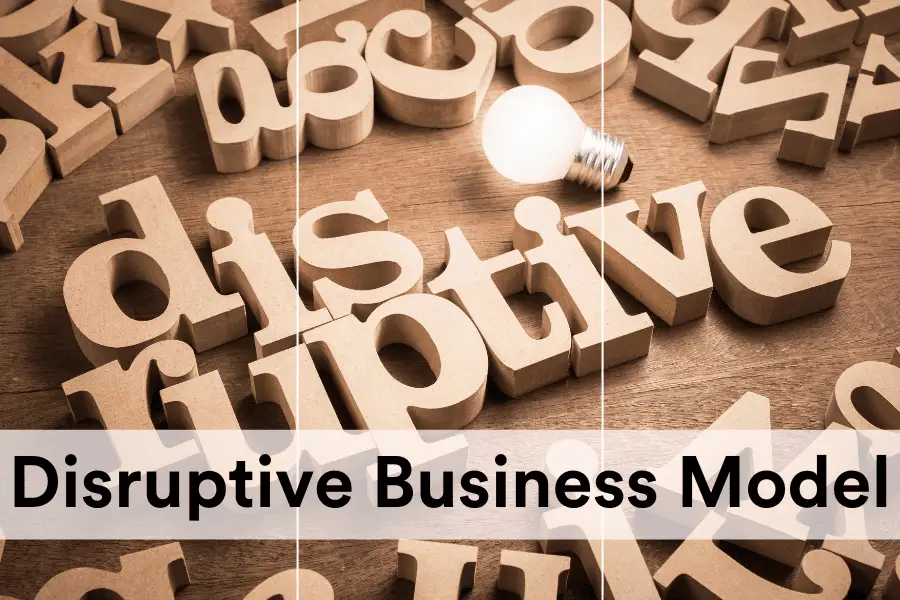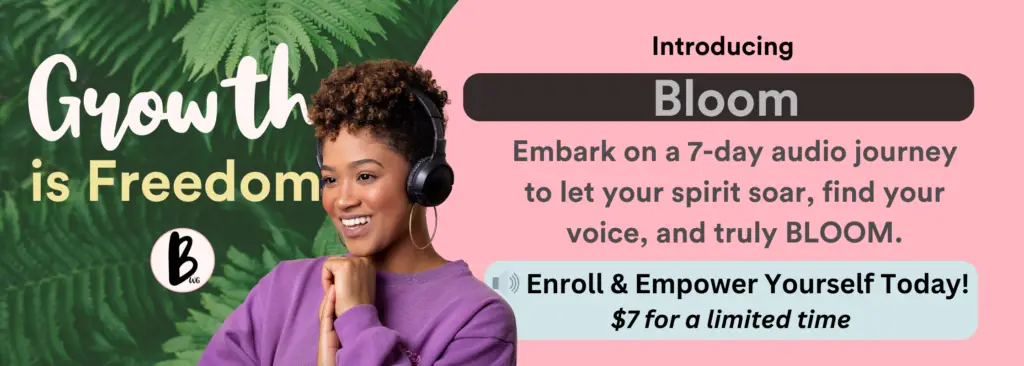The future of business is being redefined by disruptive innovations. In this post, we’ll talk about the top 7 disruptive business models transforming the industry.

As a writer, my first encounter with the concept of a disruptive business model left a lasting impression on me. This simple yet powerful idea was introduced to me by Chinyere, an experienced curator, who shared her insights on the transformative power of disruptive business models. Her experiences have shown me that a game-changing idea can be found in the most ordinary of circumstances, as long as we are open to seeing it.
Table of Contents
Embracing the Potential of Disruptive Business Models
A disruptive business model is an innovative business approach that challenges established norms and reshapes the industry landscape. This concept is becoming increasingly important in today’s fast-paced world, as businesses need to innovate to stay ahead of their competitors constantly. Disruptive business models harness the power of technology and adopt unconventional strategies to deliver new value propositions, revolutionize customer experiences, and propel growth.
Top 7 Disruptive Business Models Transforming the Industry

In this section, we’ll explore the top 7 disruptive business models that have revolutionized their respective industries, drawing from the rich experiences and insights provided by Chinyere.
- Subscription Economy: Companies like Netflix, Spotify, and Birchbox have demonstrated the power of subscription-based business models, allowing customers to access a wide variety of products and services for a fixed monthly fee. This approach has disrupted traditional sales models and redefined customer expectations.
- Direct-to-Consumer (DTC): The DTC model involves selling products directly to consumers, bypassing traditional retail channels. Brands like Warby Parker, Casper, and Glossier have used this model to create more personalized buying experiences and establish strong customer relationships.
- Sharing Economy: Platforms like Uber, Airbnb, and TaskRabbit have built their businesses upon the sharing economy concept, connecting people who have underutilized assets with those who need them. This innovative model has disrupted established industries, promoting more efficient resource allocation.
- Freemium Model: Successful companies like Dropbox, LinkedIn, and Canva offer a basic version of their product for free, with premium features available for an additional cost. This allows customers to try the product without any financial risk, while still generating revenue from those who choose to upgrade.
- Data-driven Business Models: Companies like Google, Facebook, and Amazon collect and analyze vast amounts of user data to provide highly targeted advertising and personalized recommendations. This data-driven approach has disrupted traditional marketing and advertising strategies.
- Platform Business Model: By creating a platform that connects different parties, companies like Alibaba, Airbnb, and Upwork have been able to disrupt traditional industries, allowing users to connect and transact directly with each other.
- Digital-first Business Models: With the rapid expansion of e-commerce, businesses like Shopify, Etsy, and Amazon have established digital-first models that prioritize online sales and prioritize customer satisfaction through technology-driven solutions.

Answering Key Questions
Now that we have explored the top 7 disruptive business models, let’s address some common questions on the topic.
What is a disruptive business model example?
An example of a disruptive business model is the subscription economy, where companies offer products or services at a fixed monthly fee, underlining the growing shift towards convenience and personalized experiences.
What is an example of a disruptive company?
Uber is a prime example of a disruptive company, as it fundamentally changed the way people interact with transportation services, transforming the taxi and ridesharing industries.
What is disruptive in business?
In business, disruption refers to the process of introducing new and innovative ideas, products, or services that challenge and change how existing markets work, often leading to the decline or displacement of existing competitors.
This post was all about Redefining the Future: Top 7 Disruptive Business Models Transforming the Industry.
Chinyere’s Personal Experiences and Anecdotes
Drawing from Chinyere’s profound experiences, let’s delve into some personal anecdotes that show the impact of disruptive business models and how they can inspire us to reimagine our ventures.
Chinyere’s journey on understanding disruptive business models taught her that powerful ideas do not have to be complex. For example, the sharing economy, as seen with Airbnb, is built on a simple premise but has transformed the travel and lodging industries.
This insight taught her that sometimes simplicity is the key to making a significant impact. Chinyere stressed the importance of staying in tune with our everyday experiences to identify potential disruptive ideas. By observing daily pain points and challenges, we can find opportunities to devise innovative solutions that shake up the status quo. For instance, Uber’s success began with addressing the frustrations of traditional taxi services.
Tips on Embracing Disruption in Your Business

With Chinyere’s experiences and insights in mind, here are some recommendations on adopting a disruptive mindset in your business:
1. Identify pain points: As Chinyere noted, look for common problems that people face in their day-to-day lives and brainstorm innovative ways to address these challenges.
2. Capitalize on technology: Embrace technology as a tool to streamline processes, enhance customer experiences, and disrupt traditional methods in your industry.
3. Network relentlessly: Chinyere emphasized the importance of networking. Connecting with like-minded professionals, mentors, and potential partners can open up opportunities and generate valuable insights into your own business.
Empower Yourself Through Personal Growth and Development
As Black women, embracing disruption does not only apply to businesses but also extends to personal growth and development. It’s essential to challenge ourselves continually and strive for progress in all aspects of our lives. BlackWomanGreat.com embodies this spirit of empowerment and growth by offering a 7-day audio course called “Bloom: A 7-Day Journey to Personal Empowerment.” This course provides a guided journey for personal development, allowing you to invest just $1 a day for a week to unlock your greatness and drive positive change in your life. Join us at BlackWomanGreat.com and embark on your transformative journey today.
Disruption and Personal Empowerment: Takeaways for Black Women
As Black women, we are no strangers to disruptive thinking. Through our resilience, creativity, and strength, we have continuously broken through barriers in various aspects of life. This makes it all the more important for us to apply disruptive thinking in our personal growth and in our contribution to transforming the world. Here are some key takeaways that can inspire and guide black women in adopting disruptive thinking for personal growth and empowerment:
1. Embrace adaptability: In a world of constant change, adaptability is crucial for personal growth and seizing new opportunities. Cultivate the ability to learn from disruptive business models and adapt your skillset and mindset accordingly.
2. Unlock the power of community: Black women have a unique advantage in the power of sisterhood. When we come together as a community, we can mutually support, uplift, and empower each other. Embrace this spirit when fostering your professional networks and connections.
3. Seek mentorship: Engage and connect with mentors, role models, and peers who can provide invaluable insights, guidance, and support on your journey toward personal and professional growth.
4. Persevere: The path to redefining the future can be challenging, but with persistence and determination, you can overcome obstacles and continue moving forward. Never underestimate the power of your perseverance and resilience.
Invest in Your Growth with “Bloom: A 7-Day Journey to Personal Empowerment” At BlackWomanGreat.com, we understand the importance of nurturing personal growth and disrupting traditional patterns of thinking.
That’s why we have developed the “Bloom: A 7-Day Journey to Personal Empowerment” audio course to help you unlock your potential and embrace a more prosperous future – in just a week! Through this transformational 7-day journey, you will: – Reflect on your aspirations and set tangible goals for growth. – Equip yourself with effective tools, strategies, and practices for continuous personal development. – Connect with a supportive, empowering community of black women who aspire to greatness.
For just $7, you can access this vital resource and begin your journey toward personal empowerment and disruptive thinking. Don’t miss this opportunity to invest in your growth and redefine your future. Join us at BlackWomanGreat.com and let your greatness bloom!
Conclusion: Embracing Disruption and Redefining the Future
By learning from Chinyere’s experiences and the examples of innovative companies, we see the impact that disruptive business models can have on established industries and our personal lives. Aspiring entrepreneurs and professionals can draw inspiration from these examples to reassess their ventures and explore their potential for growth and innovation.
Disruptive thinking is the catalyst required to redefine the future and forge a path toward a more prosperous and sustainable tomorrow. Embrace disruption as an opportunity to unleash the transformative power of your ideas, and always strive for growth and development in every aspect of your life. Subscribing to our “Bloom: A 7-Day Journey to Personal Empowerment” audio course is an excellent opportunity to take control of your personal growth and reap the benefits of a disruptive and empowered mindset.
This post was all about Redefining the Future: Top 7 Disruptive Business Models Transforming the Industry.

